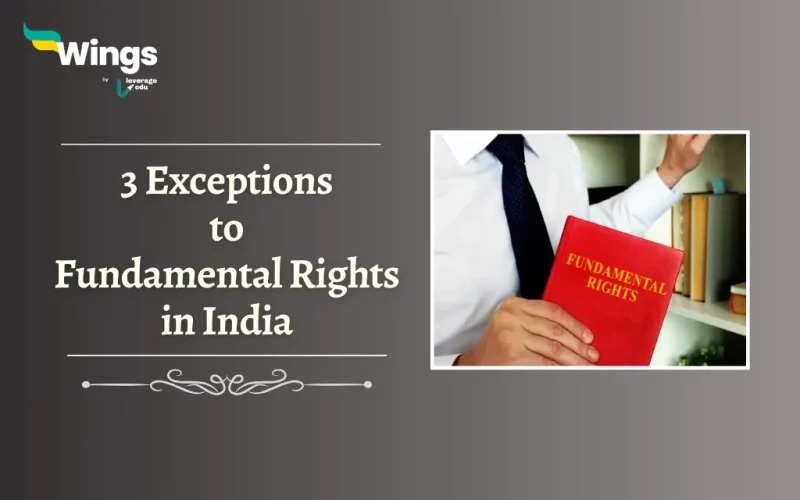Articles 31A, 31B and 31C in the Indian Consitution are Exceptions to the Fundamental Rights. Moreover, the 3 Exceptions deal with the Right to Property in India. The 44th Amendment of 1978 removed property as a Fundamental Right. However, Articles 31A, 31B, and 31C provide exceptions. These articles allow the Government to acquire property for public purposes or to impose reasonable restrictions in the interest of the general public. Read on to learn the 3 Exceptions to Fundamental Rights in India!
1. Saving of Laws Providing for the Acquisition of Estates, etc.
Article 31A of the Indian Constitution protects specific types of laws from being challenged on the grounds of violating Fundamental Rights. They are Equality before the Law (Article 14) and Protection of Certain Rights (Article 19).
Moreover, the Article protects laws related to agricultural land reforms, industry, and commerce. These include:
- State acquisition of estates and related rights
- State management of properties
- Amalgamation of corporations
- Changes in rights of directors or shareholders
- Changes in mining leases
For a State law to be immune from Judicial Review, it must be reserved for the President’s consideration and receive their assent.
Additionally, Article 31A mandates compensation at market value when the State acquires land held by a person for personal cultivation within statutory limits.
Also Read: Who can Suspend the Fundamental Rights of Indians?
2. Validation of Certain Acts and Regulations
Article 31B shields laws in the 9th Schedule from challenges based on violation of Fundamental Rights, beyond Article 31A.
- However, the Kesavananda Bharati case of 1973 allowed challenges on Basic Structure grounds.
- Later, the Waman Rao case of 1980 limited this to laws after the 24th of April 1973.
- In the I.R. Coelho case of 2007, the Court upheld Judicial Review for 9th Schedule laws violating Fundamental Rights or the Constitution’s Basic Structure.
- Originally there were only 13 Acts in the 9th Schedule which is now 282 Acts. Moreover, State laws deal with land reforms and Parliament laws on other matters.
Also Read: How Many Schedules are there in the Indian Constitution?
3. Saving of Laws Giving Effect to Certain Directive Principles
Furthermore, Article 31C which was introduced by the 25th Amendment Act of 1971 has 2 Provisions:
- Laws aiming to implement the Socialist Directive Principles outlined in Article 39(b) or (c) cannot be deemed void for conflicting with Fundamental Rights. These are under Article 14 which is the Equality before the law and Equal protection of laws or Article 19 which is the Protection of six rights including speech, assembly, and movement.
- In addition, laws stating they are for implementing such policies cannot be challenged in Court for failing to do so.
Article 31C does not shield a State law from Judicial Review unless it has been sent for the President’s consideration and has received their assent.
Related Blogs
Lastly, we hope you liked our blog and gained an understanding of the Exceptions to Fundamental Rights. Moreover, you may even read more blogs and empower yourself with knowledge regarding Civics and Polity!
 One app for all your study abroad needs
One app for all your study abroad needs













